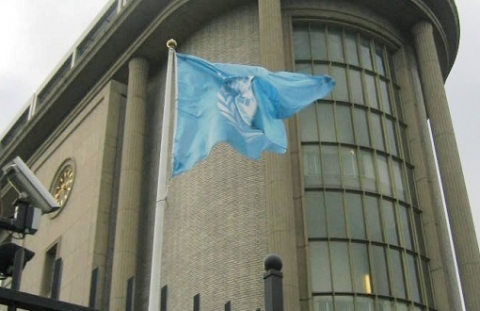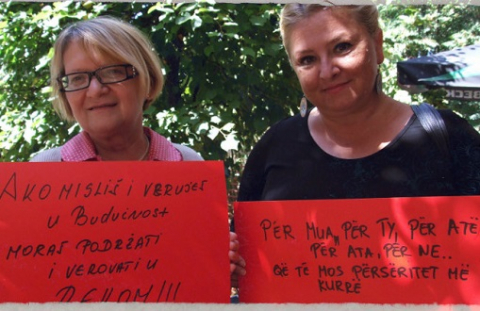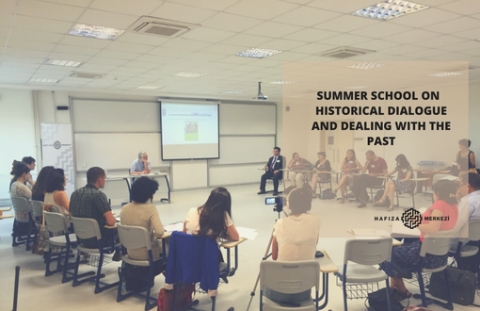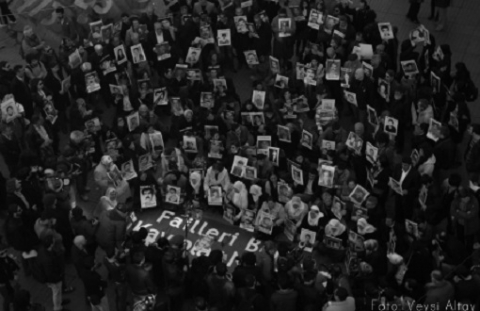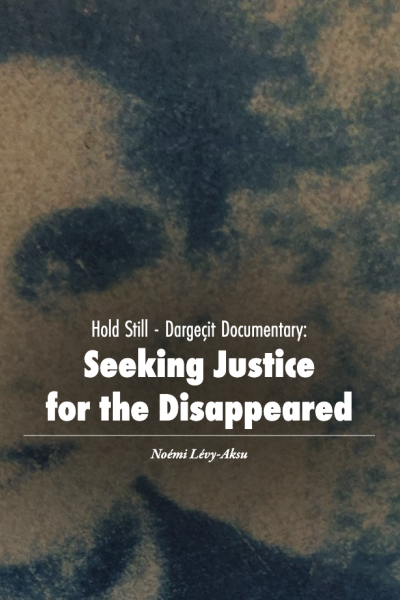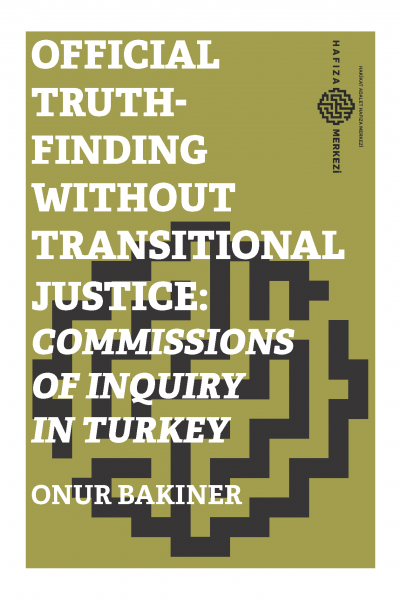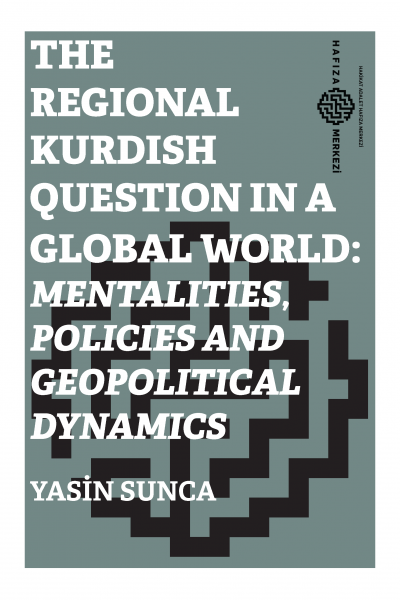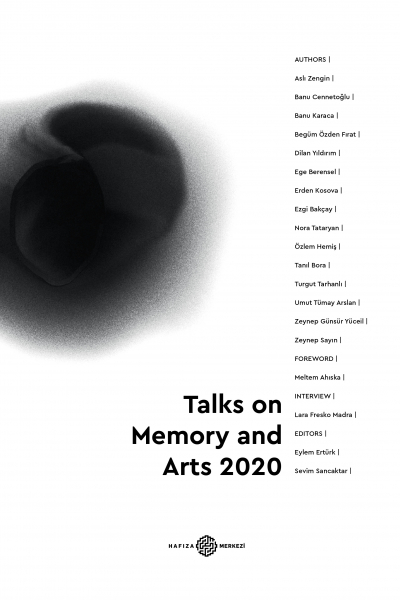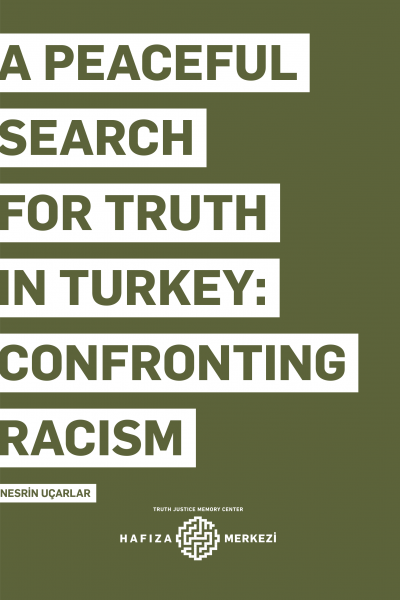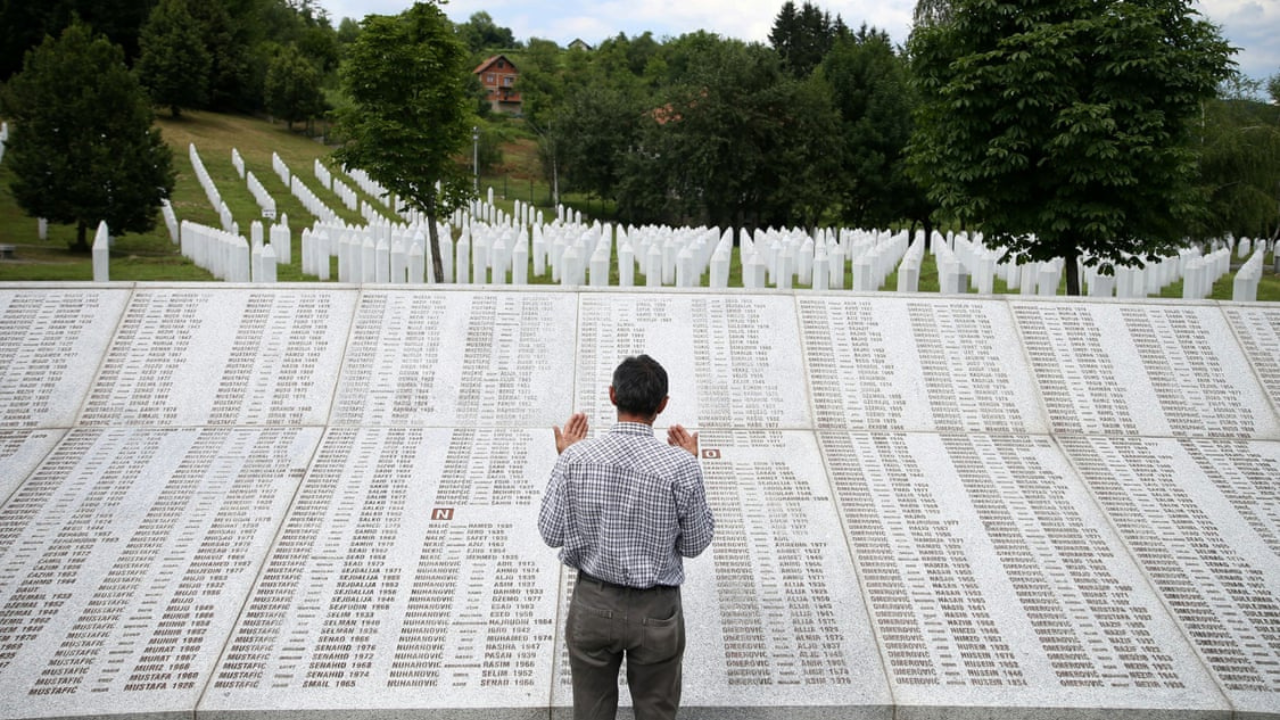
25 years after Srebrenica: Denial as the final stage of genocide
A genocide survivor prays near the graves of his father and two brothers at the memorial centre near Srebrenica. Photograph: Dado Ruvić/Reuters
Interview: Özgür Sevgi Göral
25 years have passed since Srebrenica Genocide, recognized today as Europe’s “biggest atrocity” since World War 2. On July 11, the day when commemorations took place, 9 more people were identified, confirmed by their relatives and buried at the memorial thumb. Today, despite ongoing exhumation and identification of victims, genocide denialism is increasingly becoming a mainstream attitude, no more a monopoly of the extreme right. Last month, in an interview with the Guardian, Srebrenica’s first Serbian elected mayor Mladen Grujičić said the following in relation to tribunal’s definition of what happened in Srebrenica as genocide; “Unfortunately, all these courts have been biased against the Serbs and this has only deepened divisions here“. The number of Serbian politicians who view genocide as a “fabricated myth” is on the rise.
On the occasion of 25th anniversary of the genocide, defined by European Commissioner for Neighbourhood and Enlargement Oliver Varhelyi as the “open wound of Europe”, we conducted a short interview with Nataša Govedarica. Govedarica is the Serbian director of Forum Civil Peace Service’in (forumZFD), which was found in 1996 by peace and human rights activists right after the atrocities. She helped us catch up on where we are in terms of recognition and memoralization of the genocide, as well as the politics of denial, and the challenges and opportunities ahead.
What is the particular meaning of the Srebrenica Genocide in the context of the Yugoslavian wars? How would you situate the genocide within the history of ethnic cleansing and violence?
One of the most pressing issues in post Yugoslav countries is coming to terms with our violent past. This is evident with every anniversary of war related events, be it older or more recent wars, which continue to provoke tensions. Any deterioration of the relationship among neighbouring countries in the region evokes different epochs of a common past, which never fail to trigger extreme emotions and reactions, giving the impression that society is effectively on constant high-alert and ready to boil over at any point.
Serbian state attitude towards the Srebrenica genocide is indicative of the country’s approach to its recent violent past and ethnocentric policies which led to the wars and crimes committed. As genocide was declared to be “the crime of all crime”, Srebrenica is the most challenging point within the history of war crimes, and ethnic violence. It is the zero hour on deciding if Serbian nation is guilty as a whole (not responsible, but guilty!), would this nation be remembered in the world history as genocidal one – this attitude is proclaimed by the Serbian political elite and widely shared in public.
Srebrenica Genocide was defined as a genocide by an international body, namely the International Criminal Tribunal for the Former Yugoslavia (ICTY). What are the consequences of having such a defining body in the political local context of the Balkan countries?
Even though the massacres have been defined as genocide by the ICTY, the International Court of Justice and the Bosnia and Herzegovina state court, this definition is strongly contested by Serbian and Bosnian Serb officials. For the Bosniaks community in Bosnia, it is the tragedy beyond comparison and strong identity building component. In the mean time, Serbia acknowledges that a “grave crime” took place and adopted a declaration condemning the massacre in 2010, as it sought closer ties with the west, but stopped short of using the term genocide. In November 2018, Serbian Prime Minister Ana Brnabic, in Deutsche Welle political talk show ‘Conflict Zone’, denied that the Srebrenica massacres in 1995 were an act of genocide.
Aleksandar Vucic (Prime Minister of Serbia at that point) attended the ceremony marking the 20th genocide anniversary amid heightened political tensions after a UN Security Council resolution condemning the massacres as genocide was vetoed by Russia. Although the Serbian PM was welcomed at the event by a member of the Mothers of Srebrenica victims’ group, other mourners tried to attack him and chased him away from the ceremony. Local police said several objects hit Vucic in the face and that his glasses were broken.
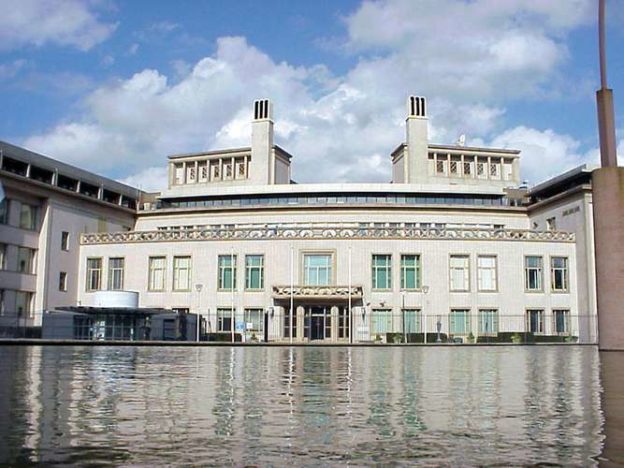
The building that houses the The International Criminal Tribunal for the former Yugoslavia (ICTY), The Hague.
These series of events made serious impact and setback in coming to terms with the war crimes legacy in Serbia as media and citizens are again sharing narratives from the past about “world conspiracy against Serbs through the British resolution”, “assassination attempt on Serbian Prime Minister organised by the Bosniaks in Potocari” and similar theories that are undermining the recognition of the genocide in Srebrenica and chances for true reconciliation in the region. The situation in Serbia did not change much in the following years.
Genocide denial is a huge problem faced on a daily basis by activists and human rights defenders. How is the situation with the recognition and denial of Srebrenica Genocide? Do you observe any changing attitudes? How Balkan states are formally dealing with Srebrenica Genocide?
Why do we, human rights and memory activists keep insisting on using this particular term? We believe that denial is the final stage of genocide, and unless acknowledged it will always deteriorate both multilateral relations of the countries, within Bosnia, and on the individual level when e.g. Serbs and Bosniaks encounter.
So, a civil society is, in contrast to governments or governmental institutions, much less bound to officially-endorsed, ethnocentric interpretations of history. To date, mainly human rights and victims’ organizations in Serbia, and in the Region, are involved in this process. The work of these CSOs is threatened on a daily basis; they are confronted by the dominant nationalistic rhetoric and a prevalent self-victimisation.
At the same time, there exists considerable potential for re-establishing trust of citizens in civil society and for creating a much-needed inter-group empathy. Therefore, civil society including activists, artists and journalists who act as outreach agents must stay active and involved in dealing with the past and in re-establishing close cross-border ties on the region’s path towards the reconciliation and good multilateral relations.
The Balkan experience does not establish a truth commission during the period of transition. Do you think that the establishment of a truth commission would open up a space for Srebrenica? What are your memorialization efforts in the context of RECOM?
As an extra-judicial body, the task of RECOM would be to establish the facts about all the war crimes and other serious war-related human rights violations; to list all war-related victims, and to determine the circumstances of their death; to collect data on places of detention, on persons who were unlawfully detained, subjected to torture and inhuman treatment, and to draw up their comprehensive inventory; to collect data on the fate of the missing, as well as to organize public hearings of victims’ testimonies and the testimonies of other persons concerning war-related atrocities. We truly believe that RECOM’s establishment and results would end up “number games”, which is one of the biggest problems also in Srebrenica case, and further leads into reletivisation and genocide negation. Acknowledging every victim, would restore the dignity, and create memorialization practice which never existed in this region before.
What place does social media play in the struggle to recognize and commemorate the genocide?
Alongside politicians, media have contributed to a lack of information on the 1990s conflicts among the region’s youth. As Amnesty International’s annual report for 2017/18 noted, slurs by officials and media close to the government created a toxic environment for transitional justice activists and independent media”. Human Rights Watch in its World Report for 2017 also stated that human rights activists who challenge the glorification of war criminals and try to document human rights abuses operate in a hostile environment and that pro-government media smear them as “traitors” and “foreign mercenaries”. The same report also said that “online threats against human rights activists are commonplace and rarely investigated by authorities.”
Further, according to Demostat research, up to 40% of people in Serbia have never heard of the Srebrenica genocide and its consequences.
The influence of social media, the attachment of younger generation to it, freedom in that space and its accessibility could be the chance and game changer. This year, partly due to the Covid19 restrictions in physical space, social media were platform to commemorate and advocate for Genocide recognition and that practice needs further development, but it is promising.
